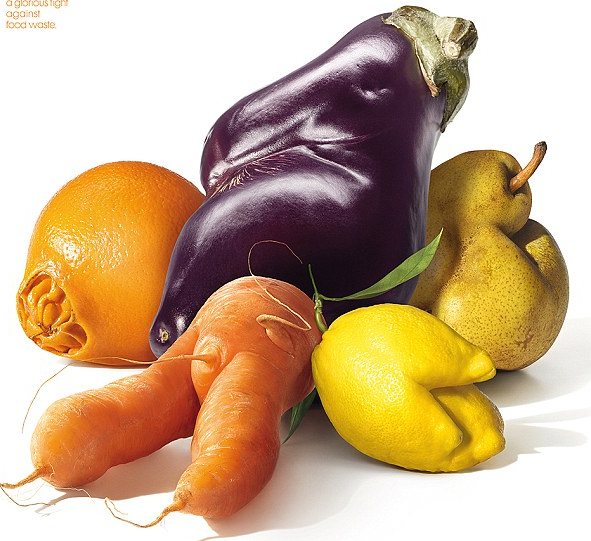This is a guest post by TallahasseeScene’s Casey Feindt
Right now the United States is more technologically advanced than it has ever been.
Drones are quickly replacing standard mail, three-dimensional printers are eliminating the need for complex industrial machines, and virtual reality is no longer just an element of sci-fi movies.
How is it that with all these amazing technological advances, we cannot seem to eradicate some of the most basic human struggles that are present in our society such as poverty? Almost one in six people in the United States struggle to put food on the table. Even more startling is the fact that Americans discard about 40 percent of all edible food harvested and produced.

Why do we toss so much food, you ask? A large portion of the waste comes from ‘ugly’ produce that the supermarkets cannot sell. Carrots that are too short, apples that are not quite ruby red and potatoes that are just slightly lumpy are all examples of produce that your favorite supermarket chain is not interested in buying. While some of the unwanted produce is made into animal feed, the majority of it is rendered useless and thrown away. Meanwhile, we watch as more and more families become dependent on our tax dollar funded food stamps just so they are able to afford the fruit and veggies deemed ‘acceptable’ food to put on the table.
But what if there was a solution to all this wastefulness? What if there was a solution that could benefit the needy, the supermarket chains and also eradicate much of our nation’s waste?

A French supermarket chain has proposed just that. Intermarché is France’s third largest supermarket giant and an advocate against food waste. Earlier this year they launched a store-wide campaign called “Les Fruits & Legumes de Moches,” which basically translates into “Inglorious Fruits and Vegetables.” The campaign buys back unwanted fruits and vegetables from growers and sells the produce thirty percent below average retail prices. The campaign has no fancy commercials or celebrity endorsements — the selling point comes from the humorous representation of the ‘ugly’ fruits and vegetables that the chain is trying to sell.
Alongside their creative marketing campaign, Intermarché also created a line of Inglorious fruit juices and soups in order to convince consumers that these ‘ugly’ fruits were just as tasty and nutritious as the produce that they would normally buy. The public responded in a way that nobody could have ever imagined. The chain sold an average of 1.2 tons of the disfigured produce in just the first two days. The supermarkets also saw a 24 percent overall store traffic increase.

People began to realize that the unwanted produce was just as good as the produce that they typically bought and was more economical as well. Not only did the Inglorious Fruit and Vegetable campaign help eradicate unnecessary waste, but they possibly helped provide fresh produce to those who could not have afforded it in the first place.
It begs the question of whether a similar campaign could be as successful here in the United States, a society dependent on Photoshop, mass consumerism and aesthetic beauty. It couldn’t hurt to try. If supermarket chains here in the United States began buying back and selling disfigured produce at discounted prices we could help combat the fight against poverty and wastefulness.
Further than that, we would be setting an example for future generations. We would be teaching them about the importance of conservation. On a larger scale we would be deconstructing the notion of ugliness and redefining it entirely.
So how about it Publix? Winn-Dixie? Who will be the first to step up to the plate when it comes to the fight against wastefulness? Waste not, want not…
Stay ugly.
Photos courtesy of: DailyMail.co.uk





